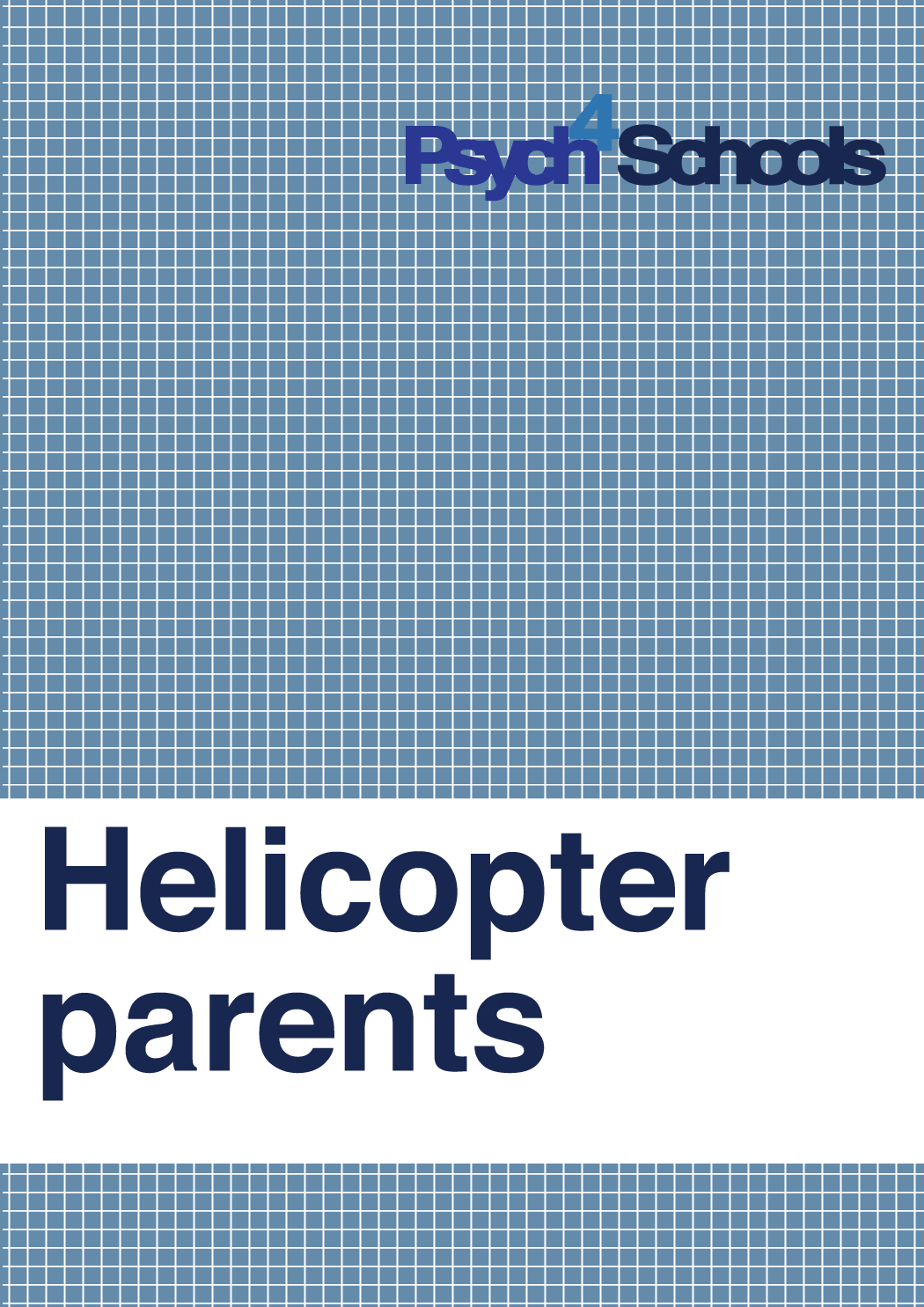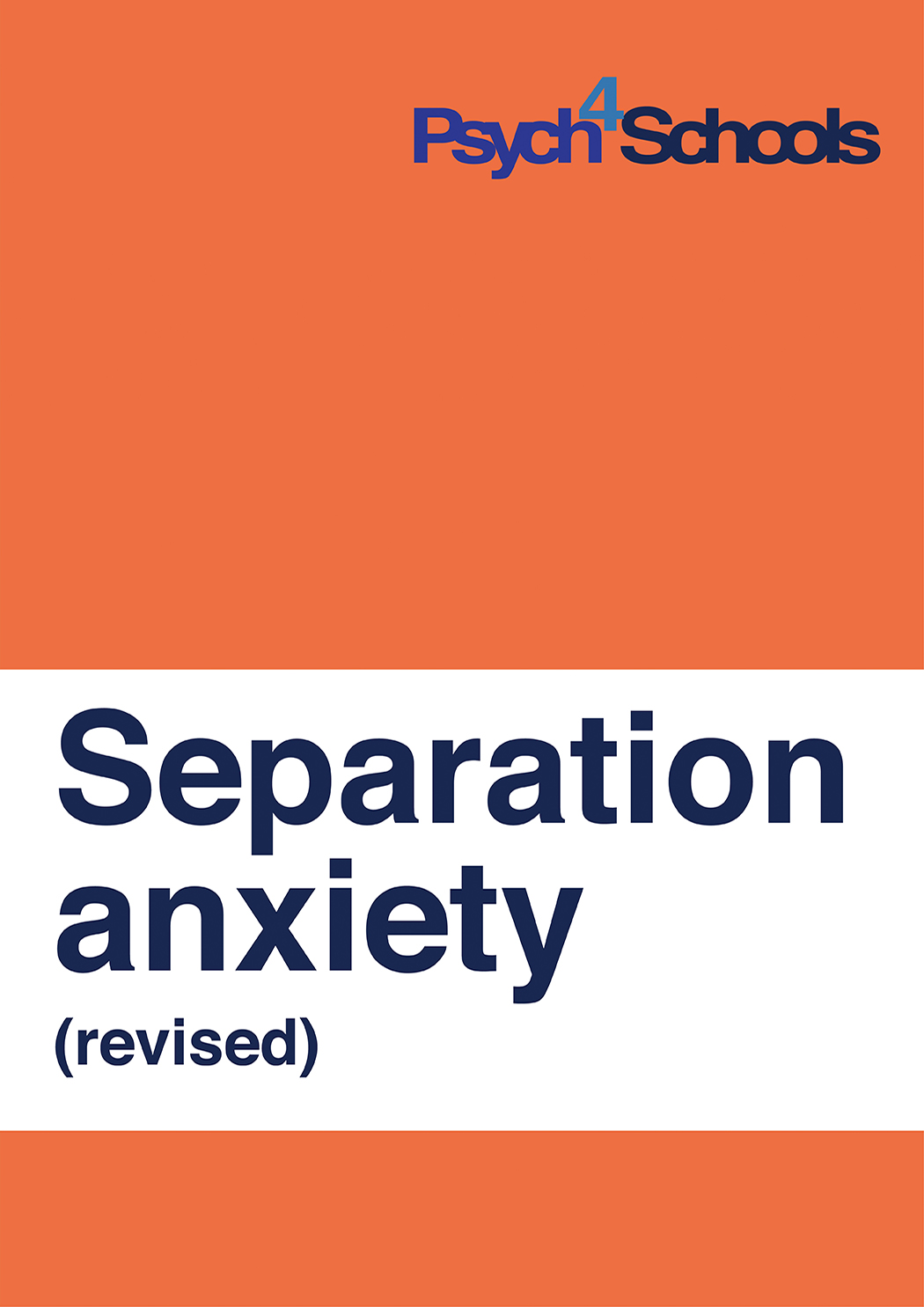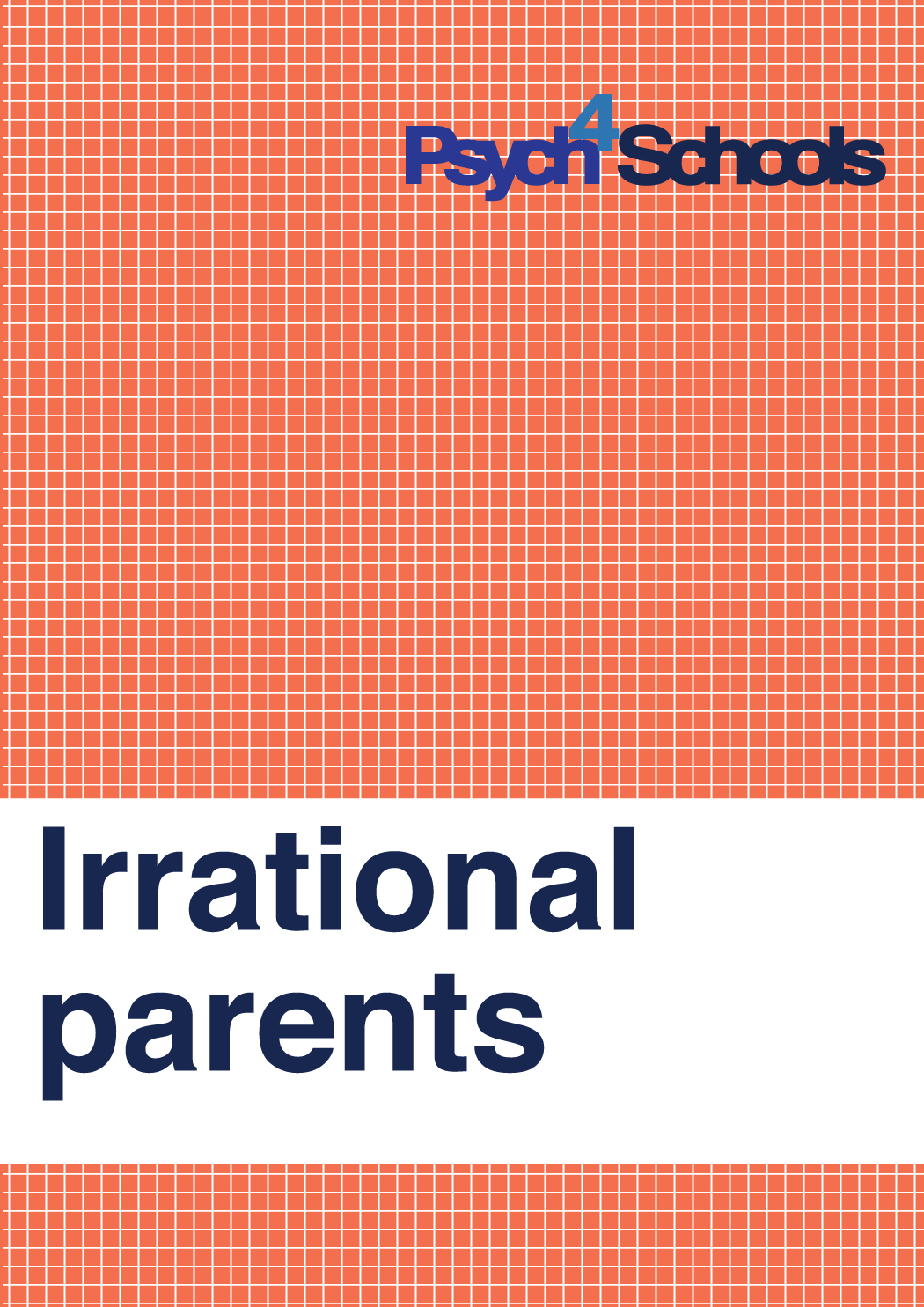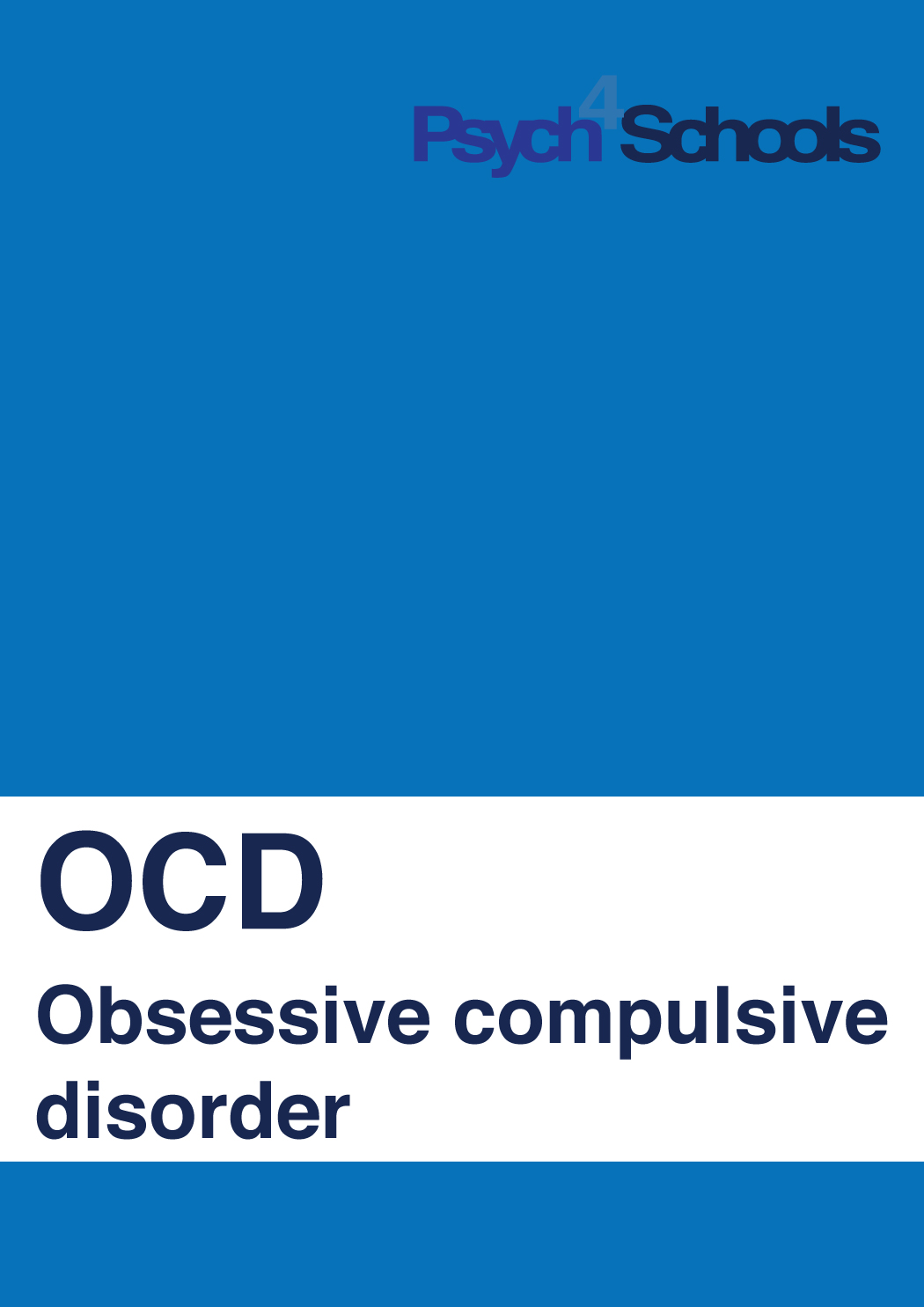Helicopter parents
The following is an excerpt from the ebooklet Working with parents who are overprotective (Helcopter parents) by Murray Evely and Zoe Ganim.
Introduction
Parents who are overprotective are sometimes referred to as ‘helicopter parents’ as they relentlessly hover over their children, trying to micro-manage their affairs. These parents pay extremely close attention to their children to try to protect them from failure, rejection and injury. They want ‘happy’ children and believe teachers should pay attention to their children in the same overprotective way.
Parents who are overprotective want their children to have a ‘good start in life’ and every opportunity to succeed. They want to protect their children from life’s harsh realities and ensure their children’s happiness. While appearing on the surface to be reasonable aims, constant striving to achieve these types of goals can contribute to increased levels of anxiety for children and their parents.
In order to become well adjusted, children need to experience the full range of emotions. Parents who want their children to always be happy are doing their children a disservice. Children need the freedom to make mistakes and experience boredom, sadness, frustration, anger, disappointment and hurt. Children need opportunities to learn to cope with life’s minor challenges. Children who ‘have a go’ at sorting out most of their own issues develop a strong internal locus of control, that is they believe they are able to cope with stress and solve their own problems.
The ‘helicopter’ parent however, rushes in to help, rather than allowing their child to have a go at managing a challenging situation themselves. This can lead to children who are unable to cope with even minor issues, as they are never given the opportunity to fail and then learn from their mistakes.
Why are some parents overprotective?
Societal changes over recent decades, such as smaller sized families, older and more affluent parents and two-income families, are linked with many parents making huge ‘emotional investments’ in their children and having greater and for some, unrealistic expectations of them. (See Appendix 1. Factors contributing to overprotective ‘helicopter’ parenting). Parents also tend to become overprotective when they are going through a difficult time themselves.
In addition, parental fear for their children’s safety has increased despite the fact that fatal injury and death rates for Australian children aged 5–14 years have reduced dramatically each decade since the 1900s.[ref] Australian Bureau of Statistics, Census of Population and Housing, 1981, 1986, 1996 and 2006. [/ref] The increase in fear is linked to the increase in our repeated exposure to stories of violence and disasters through 24-hour news channels and the Internet. Seeing and hearing the same stories time after time, increases our perception that it is a very dangerous world. Advertisers and marketers also continue to ‘frighten’ parents with the need to buy products and devices to keep children ‘safe’.
The impact of overprotective parenting on children
- Poorly developed problem solving skills. Parents who are constantly intervening to sort out their children’s issues are not allowing their children to take safe risks and learn from their mistakes. As a result these children may not believe they can solve problems independently, reinforcing their inability to face their own issues without help.
- Learn avoidance as a way of coping. Parental micromanaging means that children do not get to practice solving their own problems, as a result these children are at risk of never learning to cope effectively with minor or major life challenges without parental support. This has serious implications for children as they learn from their parents that the world is a scary place that they have no control over. Furthermore their reliance on others to solve even minor issues leads to low self-esteem, anxiety and depression and other mental health problems.
- Have difficulty dealing with friendship issues independently. Children’s opportunities to sort out their own friendship issues are greatly reduced by this parenting style. Primary-aged children, who have their friendship issues constantly ‘managed’ by an overprotective parent, are less likely to cope in adolescence and at risk of developing mental health issues.
- Less chance to develop important social skills through unstructured play. These parents are less likely to allow their children opportunities for unstructured play, preferring to involve their children in ‘safer’ organized play activities such as sporting groups, music lessons, and other organized activities. Unstructured play time is important in developing child’s self-esteem, as well as important social skills such as turn taking, sharing, co-operation and coping with frustration. Engaging mainly in structured play activities means that adults are constantly mediating, further reducing the child’s opportunity to independently practice and develop these life skills.
What does the ‘helicopter’ parent look like?
Some parents can have unrealistic or irrational beliefs about what the school can do for their child, and expect school staff to assist them in protecting their child against both minor and major challenges. Parents who are overprotective are likely to approach the school each time a minor incident occurs. They may seem pushy and often want an immediate solution to their problem, even when there isn’t an easy answer, or they may offer a solution that is irrational, such as banning running at school due to safety concerns.
Overprotective ‘helicopter’ parents may display some of the following mannerisms or behaviours:
- manage or oversee most of their children’s activities
- frequently initiate approaches to the school
- believe everything their child tells them without further clarification
- readily blame, find fault with a teacher, other school staff or other children
- display general disappointment in what has been decided or offered following a school meeting or conversation with the teacher
- have a stiff facial expression or body posture
- are tearful
- become defensive or use attacking language
- want an answer to what they perceive as ‘the issue’
- have a limited attention span
- repeat questions or statements
- use a high-pitched voice or rapid speech
- confront another child or parent on the school grounds
- make demands or threats to the teacher or the school
- engage other parents by developing their own issues-based parent ‘support’ group through oral communication, email, notes or handouts to parents.
It may be difficult to convince some overprotective parents that their child’s problems do not always need to be addressed or solved by an adult. At times, it may be necessary to point out to some parents that minor childhood disagreements are simply that and ‘tagging’ these disagreements as something major, such as bullying or an assault requiring police follow-up, is inappropriate.
Caution regarding a genuine concern by a parent
All valid parent concerns should be addressed. Such concerns include, but are not limited to, their child’s medical condition, safety, other wellbeing issues, learning difficulties, disorders, family stress or major loss, or parental diagnosis of anxiety or a medical condition.
It is reasonable for parents to expect that perceived learning difficulties and social competency issues such as bullying and other genuine concerns with the child’s safety are followed up and investigated by the school. Schools that have clear discipline and student management, welfare, or special education provision and parenting resources in place are usually well placed to assist.
Strategies to reduce the impact of the overprotective ‘helicopter’ parent in your classroom
Overprotective parents are less anxious when they perceive that they and other trusted adults have control over a situation. Teachers can reassure and increase a parent’s perception of control by using, sharing and explaining plans and structures, as well as keeping in close communication and providing information and parental education about typical issues of concern.
Set clear expectations
- Be clear about your availability. Write to all parents in the first week (as a team of teachers or individually) and prominently display your preferred methods and times for communication. Set ‘parent teacher talk times’ on specific days and times before and after school. If offering other forms of communication, such as phone calls or email, set limits. For example, emails and phone calls will be replied to on weekdays within 24 hours, or when you are not teaching, not in meetings and not on yard duty. Be clear about whether parents should email you via your personal school email or a general school email.
Develop effective communication channels
- Create a parent notice board. This can display classroom rules, activities, upcoming excursions, health or other information. Place the notice board outside your classroom and online, if this is permitted by your school.
- Inform parents about typical issues that may occur. At the beginning of the year, it may be helpful to provide parents with a list of what is expected of the child academically, along with behavioural and social competency issues children are learning about for that year level. These may include friendship issues and conflict, completing homework, not eating all of their lunch, feeling tired after school, ‘telling tales’ or using a diary. Use multiple avenues for communication, for example meetings, school and department newsletters, presentations by senior staff members or trusted guest speakers, and the school website. See the Psych4Schools document ‘Creating a great working relationship with parents’, for a table that presents a sample of issues that may concern parents.
ISBN978-1-921908-24-8
Copyright © Murray Evely and Zoe Ganim 2011
No part of this excerpt may be reproduced or reprinted without permission in writing from the publisher.
Click here to read copyright details, summary of the licence and terms and conditions to use and reproduce our digital materials granted to authorised users.
This article is an excerpt from the ebooklet Parents who are overprotective.
Download the complete ebooklet for full access to strategies and resources, including:
- Set clear expectations
- Develop effective communication channels
- Get to know your parents
- Keep the lines of communication open
- Meetings with overprotective parents including
- planning
- clarifying the issue
- helping to give perspective
- educating the parent
- concluding the meeting





